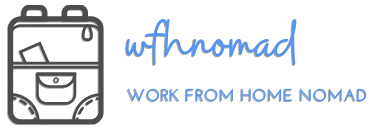*Corporate America Edition
This article is to focus on the Interviewing aspect. I wrote an article on Landing the Interview in part one of Strategies to Land an Interview.
Everybody on both sides is on their best behavior during an interview. That should include you.
What is asked and done during the interviews is highly subjective to the role you’re interviewing for. For example, a software engineering role is 99% guaranteed to have some sort of exercise to test your coding skills.
In general, you should be hit with a few behavioral questions, so I’ve included a big portion here.
Come up with 4-7 specific scenarios at work/school over the past 2 years that demonstrate your strengths and why your weaknesses have become positives.
Should I dress up for the video interview?
The answer is always this: Yes, just do it.
Should I come prepared with questions for the employer?
The answer is also always this: 10000% Yes.
You need to assess if the culture is a good fit for you. Why? Because if the environment isn’t for you, then it doesn’t matter how great the role is, you won’t be able to succeed. Make sure you ask specific questions about the company and the team culture.
Have a pitch prepared to the following questions:
- Tell me about yourself. – should be 90-120 seconds and tell a story from your resume that directly relates to the job you are applying to. Example:
- Why are you interested in this job? There are several ways to ask this question. “Why *insert job title here*?”, “What makes you a good *insert job title here*?”
- Tell me a time when you disagreed with somebody and how did you resolve it?
- What’s your biggest weakness?
An example of a 90 second “Tell me about yourself” answer that I practiced a million times while I was applying to Product Management roles:
I would say my professional career started when I went to university on a swimming scholarship, and I studied Engineering. I ended up moving to Texas for my first job in oil and gas. Then I realized I wanted to do something more data-driven and be in that environment, so inspired me to get an Analytics degree. That also inspired me to move to San Francisco to pursue jobs in Tech and SaaS. I joined a startup on contract before I received a full time offer with my current employer and I’ve been here for four years now. As a Software Implementation Consultant, I’ve served numerous roles on different projects including Project Manager, Solution Architect, and Migration Architect. Over the past few months, I started evaluating on what I want in the next steps of my career, and I’ve come up with the conclusion that I want to become a Product Manager because I love the problem-solving aspect of my job now. I started networking internally and externally with product managers to learn more. I started listening to podcasts, and my favorite episode has been “The Transition from Consulting to Product Management – what transfers well and what doesn’t transfer well” because it obviously resonated with me the most. That’s why I’m really excited to learn more about Product Management at your company and I do really appreciate your time.
Tell me about yourself doesn’t mean “tell me about you being super proud of hiking Mount Kilimanjaro”. Tell me about yourself is an opportunity to convince them you are the right person for the job.
Answering negative questions such as “What’s your biggest failure?”
These are google-able, but you want to give a quick background of the situation, explain why it was negative, but then the most important part is to explain why it ended up being positive.
Example:
I was trusted to lead a global security workshop, and I failed to push back on the customer when they wanted to keep the security granular. The result was that their IT department was flooded with tickets after go-live because the security was way too granular, and frustrated users couldn’t access their documents and data. Even though at that point I had already rolled off the project, I took it very personally because I could have pushed harder to prevent that, so I decided to present internally on lessons learned as to why the security model on projects should always be kept as open as possible. The presentation has been well-received, and people today still reach out to me about that.
Notice that I could have EASILY used this same example to answer the question “What was your low point during your time at your current employer?” or “Tell me a time when something spun out of control and how did you manage the crisis” or I could have slightly spun my answer to the question “What’s your biggest weakness?”
At the end of the day, it’s an answer that can be repeated for different ways of asking the same question. It depends on the role, but do your homework – generally you would need to be prepared to come up with 4-7 specific examples and I would practice in front of a mirror or record yourself to make your answer crisp during the interview.
Answering the “What are your Salary Expectations” question?
I would say the first thing to keep in mind is to NOT tell them how much you make now.
First, do some research. What is your market value? And to answer that question, you need to ask yourself a few questions: Do you have a college degree? Do you have a graduate degree? How much are your peers making at other companies? How many total years of experience do you have? How many years of relevant experience do you have?
Once you figure that out, make sure you respond with a range, like “I’m looking to be in the $145k-$160k range”. If you are applying for an entry level position and are looking to just get a foot in the door, and unless you have a specific number you’d like, feel free to respond, “Salary expectations are not a priority for me right now, I’m more focused on the right company and learning as much as I can.”
I’ve heard from other sources that an appropriate boomerang question is “What do you have budgeted for this role?” I’ve never asked that question back, but maybe that can be an option.
Letting the Recruiter know that competing companies have expressed interest in giving you an offer
AKA what happens if my top choice is taking forever but my #2 is far ahead of the process? You wouldn’t want your second choice to give you an offer to have it expire before your top choice can give you an offer.
Always, always communicate and let your top choice know.
Here is an example:

And the result was positive. The recruiter appreciated the heads up.

It instilled FOMO into the recruiter. They were definitely thinking: “It’s ok if we lose Wilson because we determined he wasn’t qualified but omg oh crap, I don’t want us to lose Wilson because another company snatched him up before we did.”
Secondly, it shows you communicate. You’re giving them the heads up and not waiting until the last minute. The alternative situation is for them to find out that you received an offer and that they have 4 business days to do 3 rounds of interviews just to catch up.
An offer (almost) means nothing until it’s written. It is customary to have the written offer before you make big decisions, such as giving your current employee the 2 week notice.
Negotiating the salary
Just do it. IMO on the contrary, if you don’t try to negotiate the salary, you look like a pansy.
An example: “I really appreciate the offer at $80K, but I’m really looking to be in the $90K range due to my deep experience at company ABC working with workflows and lifecycles and for reasons B&C&D. Any chance that would be possible?”
The worst thing is that they can say no. But companies expect you to negotiate so they typically leave a little extra in the budget for wiggle room.
Declining an Offer
If possible, get the recruiter/hiring manager on the phone. It is SO much better to express your gratitude over a call than a simple “thanks but fk you jk but actually…no” email.
You can have something written out in front of you too. You could say something like: “Hey John, I wanted to hop on the phone and express my gratitude and to say thank you so much for the offer and for taking the time to interview me. After further consideration, I’ve decided to go with another role that fits my passion more for ___. It was a really difficult decision and want to let you know that I was really impressed with everybody through the interview process. For those reasons I’d love to stay connected if future roles open up at your company and if it’s ok with you I’d love to add you on LinkedIn.”

